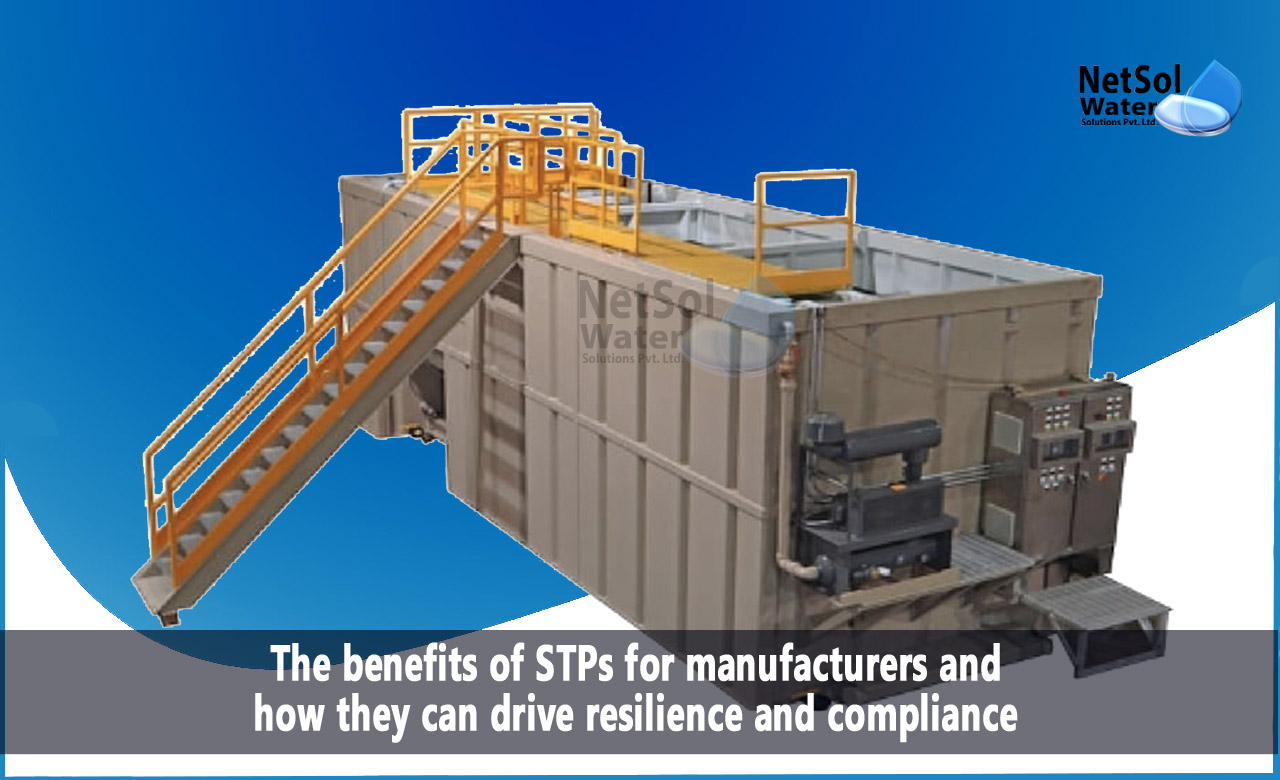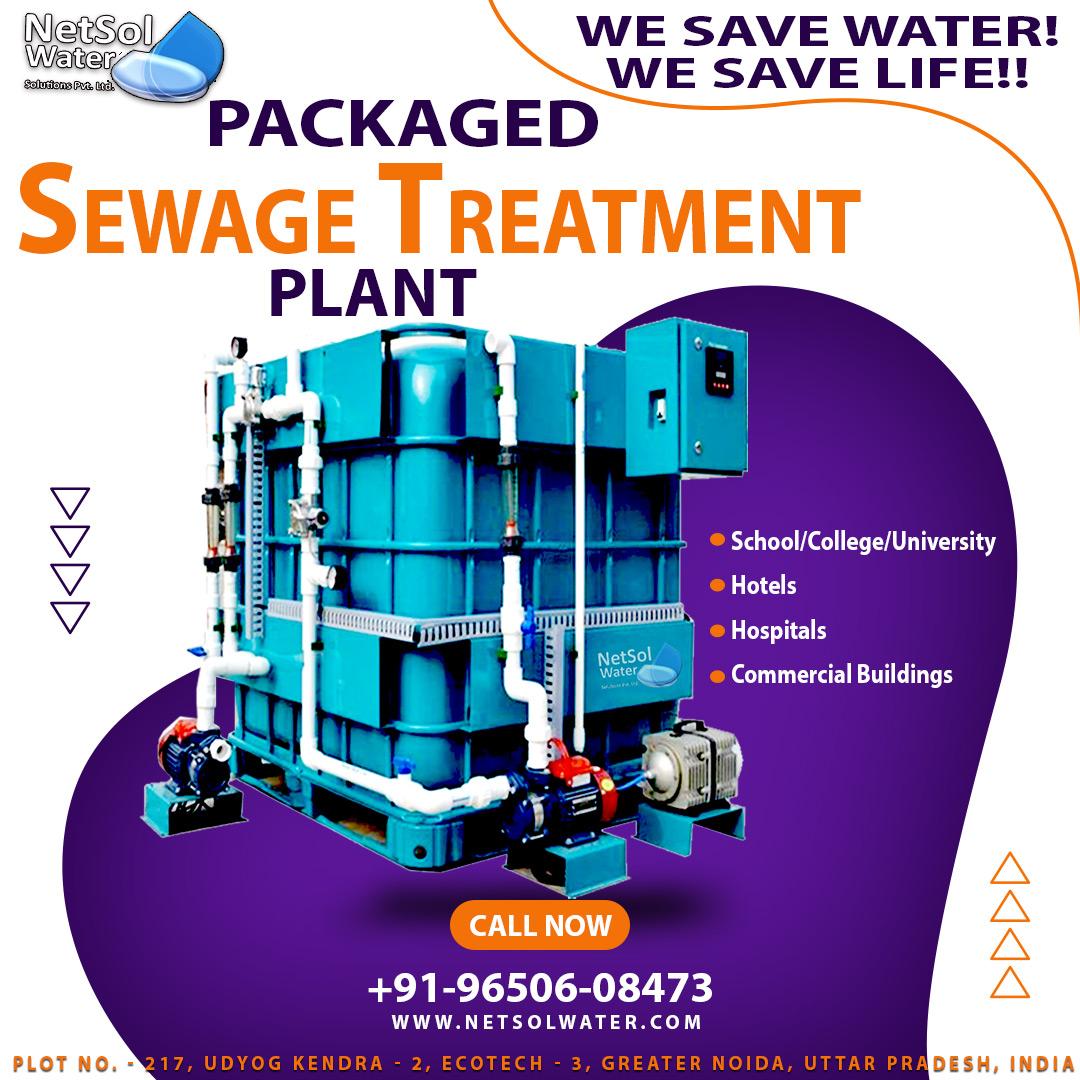What are the benefits of STPs for manufacturers?
In today's world, where environmental sustainability and regulatory compliance are becoming increasingly critical, manufacturers face the challenge of meeting stringent wastewater treatment standards. To overcome this obstacle and achieve long-term success, many manufacturers are investing in sewage treatment plants (STPs). These plants not only help mitigate environmental impact but also foster resilience and compliance in manufacturing operations.
In this blog post, we will explore the benefits of STPs for manufacturers and how they can drive resilience and compliance.
1- Environmental Responsibility
Sewage treatment plants play a crucial role in ensuring environmental responsibility for manufacturing companies. By treating and purifying wastewater generated during the production process, STPs prevent harmful contaminants from entering natural water bodies. This significantly reduces the ecological impact, helping to preserve aquatic ecosystems and protect public health.
Manufacturers can demonstrate their commitment to sustainable practices by implementing STPs, thereby improving their environmental footprint. Reduced water pollution contributes to cleaner air and healthier communities, leading to improved brand reputation and stakeholder confidence.
2- Compliance with Regulations
Adhering to environmental regulations is a top priority for manufacturers. Non-compliance can lead to hefty fines, legal consequences, and reputational damage. Sewage treatment plants enable manufacturers to meet and exceed stringent wastewater treatment standards set by local and national authorities.
STPs employ advanced technologies and processes that effectively remove contaminants from wastewater, ensuring compliance with parameters such as biochemical oxygen demand (BOD), chemical oxygen demand (COD), suspended solids, and pH levels. By investing in an STP, manufacturers can proactively address regulatory requirements, minimize the risk of non-compliance, and maintain a positive relationship with regulatory agencies.
3- Cost Savings and Operational Efficiency
Implementing a sewage treatment plant offers long-term financial benefits to manufacturers. While the initial investment may seem substantial, the cost savings over time outweigh the upfront expenditure. Here's how STPs drive cost efficiency:
a. Reduced Water Consumption: STPs enable the recycling and reuse of treated wastewater within the manufacturing process, reducing the need for freshwater intake. This conservation measure leads to substantial cost savings on water sourcing and supply.
b. Waste-to-Energy Potential: Some STPs incorporate anaerobic digestion or other energy recovery technologies that convert organic waste into biogas or other forms of energy. Manufacturers can harness this energy to power their operations, reducing reliance on external energy sources and lowering utility expenses.
c. Minimized Disposal Costs: When manufacturers treat wastewater on-site, they minimize the costs associated with transporting and disposing of untreated wastewater off-site. Additionally, by adhering to regulations and avoiding penalties, manufacturers avoid the financial burden of non-compliance fines.
4- Resili?ence in Changing Environments
Environmental factors, such as water scarcity, climate change, and regulatory updates, pose significant challenges for manufacturers. Implementing an STP enhances resilience by reducing reliance on external water sources and ensuring compliance with evolving environmental regulations. By taking control of their wastewater treatment processes, manufacturers can mitigate risks associated with water scarcity, regulatory non-compliance, and potential disruptions to their supply chains.
Conclusion
Sewage treatment plants have emerged as indispensable assets for manufacturers aiming to drive resilience and compliance while fulfilling their environmental responsibilities. These plants not only enable manufacturers to meet stringent wastewater treatment standards but also offer cost savings, operational efficiency, and a competitive edge in the marketplace.
Investing in an STP is a proactive step towards sustainable manufacturing practices, ensuring a cleaner environment, regulatory compliance, and long-term success. By embracing sewage treatment plants, manufacturers can enhance their brand reputation, contribute to environmental preservation, and foster a resilient future for their businesses and the planet as a whole.
Netsol Water is Greater Noida-based leading water & wastewater treatment plant manufacturer. We are industry's most demanding company based on client review and work quality. We are known as best commercial RO plant manufacturers, industrial RO plant manufacturer, sewage treatment plant manufacturer, Water Softener Plant Manufacturers and effluent treatment plant manufacturers. Apart from this 24x7 customer support is our USP. Call on +91-9650608473, or write us at enquiry@netsolwater.com for any support, inquiry or product-purchase related query.




